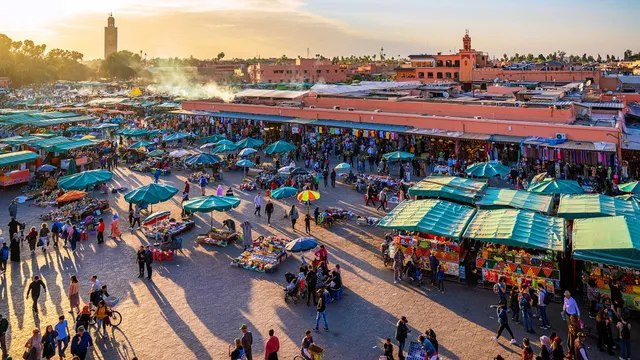
UK updates travel guidance for Morocco amid Middle East tensions
2025-06-16 12:50- The UK Foreign Office updated its travel guidance for Morocco on June 13, 2025, alerting travelers to potential regional security risks.
- While no parts of Morocco are restricted for travel, visitors are cautioned about petty crime and advised to avoid political protests.
- Travelers should remain vigilant and stay informed about local news to ensure their personal safety during their visit.
Express your sentiment!
Insights
Morocco, located in North Africa, remains a popular destination for travelers despite ongoing tensions in the Middle East. On June 13, 2025, the UK Foreign Office issued an update regarding travel safety to Morocco, emphasizing that while the country itself is not directly affected by the conflict between Israel and Iran, there are potential security risks due to regional instability. The Foreign Office confirmed that no part of Morocco is under travel restriction, although visitors are urged to remain vigilant and avoid political demonstrations, which could pose safety threats. This update follows concerns about rising hostilities in the broader region affecting many neighboring countries and how this might impact tourists. Travelers to Morocco are advised about the risks of petty crime, including pickpocketing and bag snatching, particularly in popular tourist areas such as historic districts and beaches. Although occurrences of violent crime are sporadic, tourists should remain cautious and be aware of their surroundings. Additionally, visitors should respect local customs, especially regarding public displays of affection, which can lead to legal infringement. The Foreign Office’s guidance aims to help travelers navigate their visit while keeping in mind personal safety and adherence to local laws. Entry requirements for British passport holders traveling to Morocco for tourism remain straightforward, with no visa needed for a stay of up to 90 days. However, visitors are reminded to have their passports stamped upon arrival to avoid any complications during departure. Given the recent updates regarding potential security risks due to ongoing regional hostilities, travelers are encouraged to stay informed through local news and follow any directives given by security officials during their stay. In conclusion, as Morocco continues to attract tourists despite the surrounding tensions in the Middle East, it is essential for travelers to stay updated on security advice and take necessary precautions to ensure a safe visit. By offering continuous guidance, the UK Foreign Office emphasizes its commitment to the welfare of British nationals abroad, enabling them to make well-informed decisions about their travel plans in the area.
Contexts
The current situation in the Middle East, specifically regarding the Israel-Iran conflict, is characterized by heightened tensions and ongoing military and diplomatic maneuvers as of June 2025. Following a series of escalatory incidents in 2023 and 2024, including airstrikes and cyber operations attributed to both Iran and Israel, the region remains on a knife-edge, with the potential for a broader confrontation looming. Both nations have continued to bolster their military capabilities, with Iran advancing its missile program and Israel enhancing its defensive systems in response. The geopolitical landscape has also been influenced by the shifting alliances in the region, particularly with the growing partnerships between Arab states and Israel, driven by shared concerns over Iran's nuclear ambitions and its support for proxy groups in Lebanon and Gaza. International involvement has also been a significant factor, with the United States and European nations urging diplomatic resolutions while navigating the complexities of their own relationships in the region. The re-entry of the U.S. into negotiations surrounding Iran's nuclear program has seen mixed reactions, with Iran insisting on sanctions relief as a precondition for compliance, while Israel remains adamantly opposed to any concessions that may empower Iran further. The escalation of rhetoric has also been prominent, with Iranian leaders vowing to continue their support for groups like Hezbollah and Hamas, viewing these alliances as essential counterweights to what they perceive as Israeli aggression. The humanitarian situation in Gaza, exacerbated by the ongoing conflict and blockades, remains dire, with calls for ceasefires and diplomatic intervention becoming increasingly urgent. The United Nations and several humanitarian organizations have urged both sides to prioritize dialogue to prevent further casualties among civilians. The possibility of unrest intensifying within Israel itself, particularly among its Arab minority, could complicate efforts for a unified response to the threats posed by Iran, as domestic pressures might influence government decisions and policies. Looking ahead, the likelihood of a direct military confrontation remains, as both Israel and Iran appear committed to their respective strategies. The intricate web of alliances and enmities, coupled with external pressures from global powers, continues to create a volatile environment. The dynamics of this conflict are fluid, and while there is a growing recognition of the need for dialogue and de-escalation, deep-seated mistrust and mutual hostilities pose significant barriers. As such, the international community remains watchful, wary of the ramifications that an escalation could have not just on Israel and Iran, but on the broader stability of the Middle East.